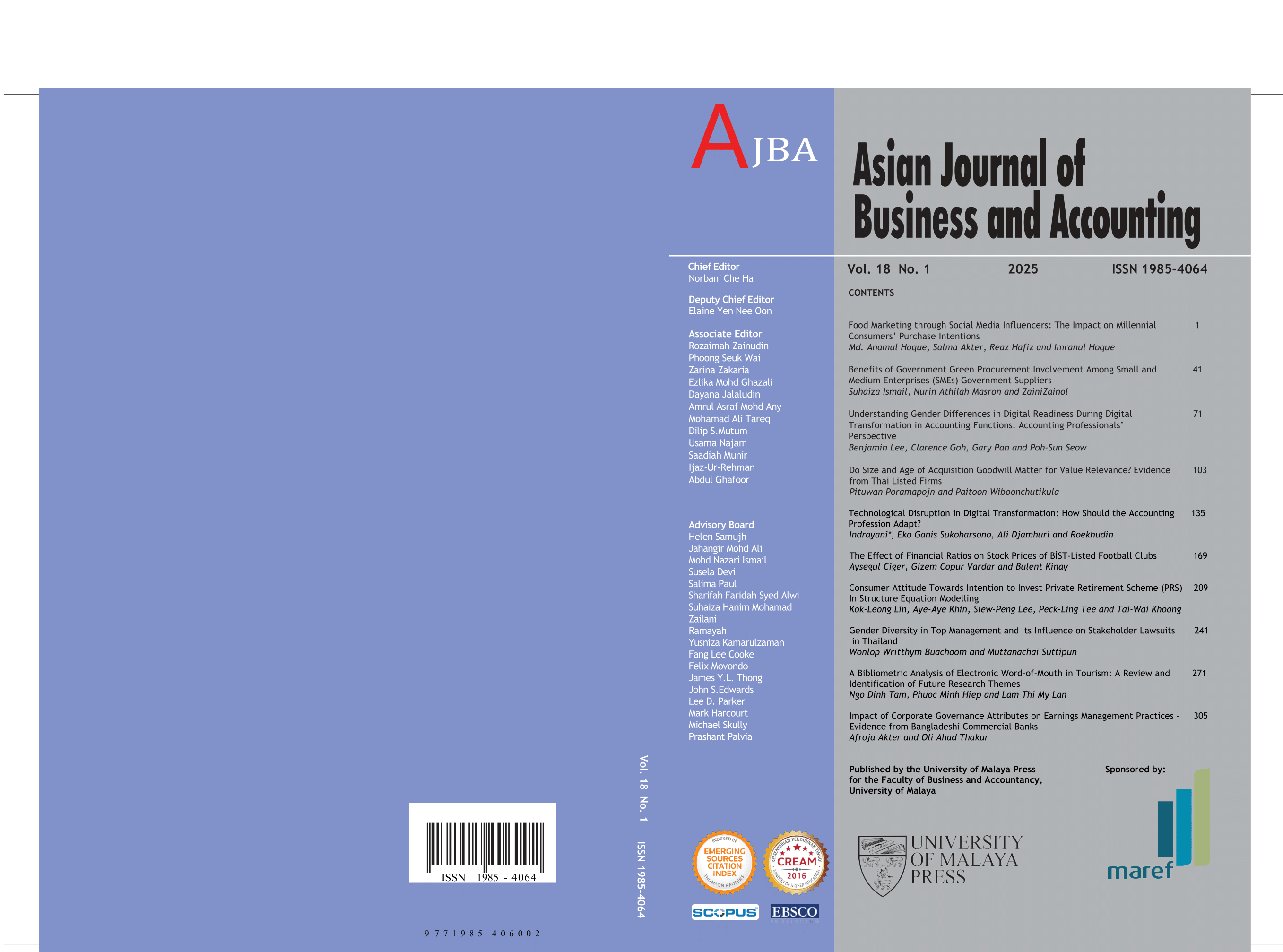Understanding Gender Differences in Digital Readiness During Digital Transformation in Accounting Functions: Accounting Professionals’ Perspective
Main Article Content
Abstract
Manuscript type: Research paper
Research aims: To examine gender differences in digital readiness during
digital transformation in accounting functions, addressing a knowledge
gap in current accounting literature.
Design/Methodology/Approach: Survey of 297 accounting professionals
(180 men, 117 women) with 27 questions on digital readiness perceptions,
analysed using exploratory factor analysis and one-way analysis of
variance (ANOVA) tests.
Research findings: Women exhibited higher overall digital readiness than
men, particularly feeling more empowered by senior management and
better equipped to continue job tasks during digital transformation. No
gender differences were found in perceptions of knowledge and skills,
barriers, or organisational strategy.
Theoretical contribution/Originality: Challenges traditional stereotypes
about women’s technological capacity by demonstrating higher perceived digital readiness among female accountants. Refutes previous research
suggesting women experience greater anxiety toward IT use, indicating
changing gender dynamics in the accounting profession.
Practitioner/Policy implications: Organisations should recognise that
women can play an important role in digital transformation initiatives.
Avoiding gender bias in talent management during digital transformation
projects is recommended, as both genders bring different values to these
efforts.
Originality/Value: Provides empirical evidence that challenges traditional
gender stereotypes in technology adoption and highlights the importance
of understanding gender diversity for improving management of digital
transformation projects in accounting contexts.
